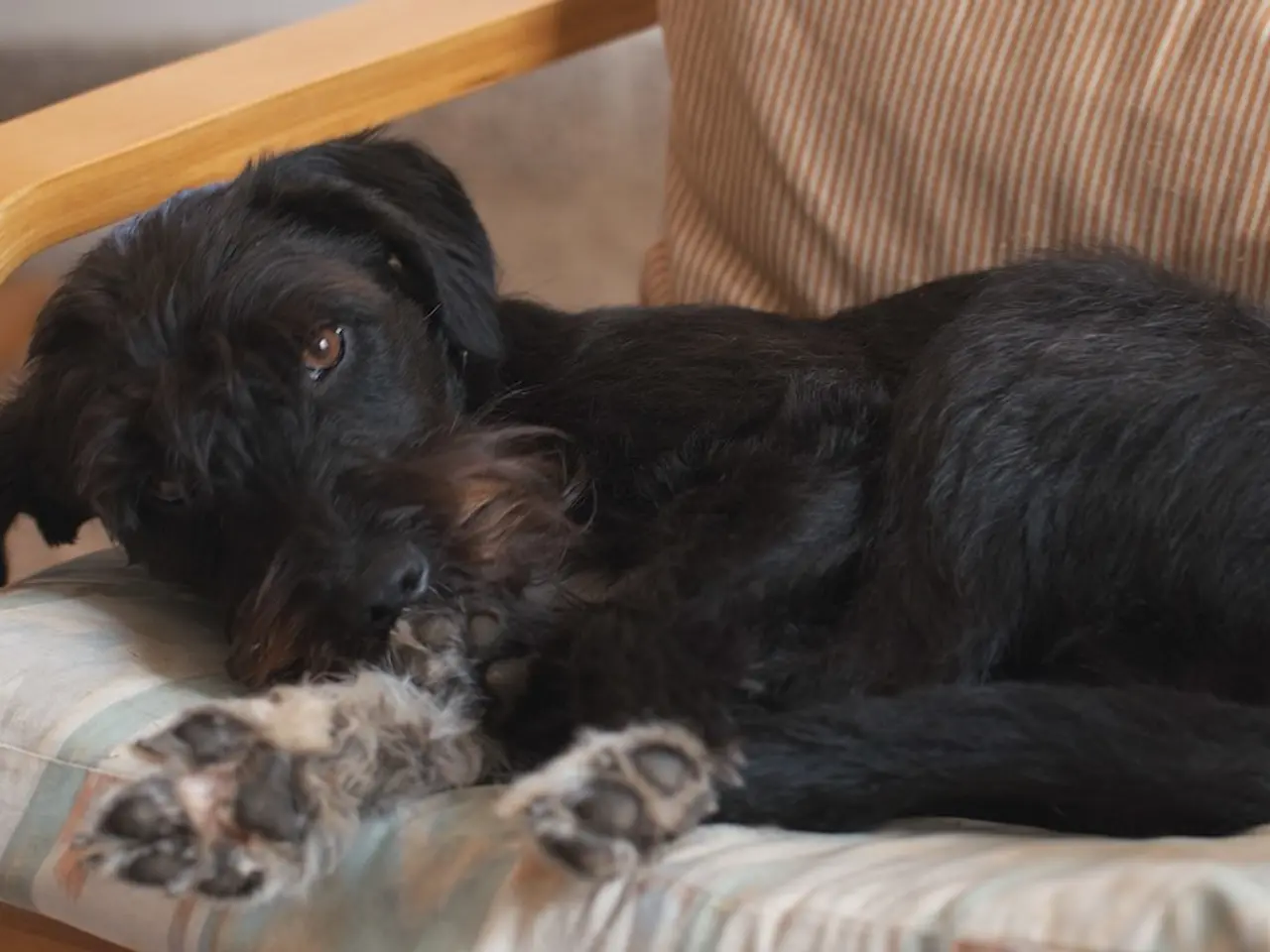Reason behind a dog's bed licking behavior
Dogs are known for their affectionate nature, and one way they express this is through licking. This behaviour serves various purposes, such as showing hunger, reducing anxiety, and demonstrating no threat. However, excessive licking can be a cause for concern.
In puppyhood, licking and sucking were essential for puppies to obtain food from their mother. As they grow, this behaviour persists, with dogs licking their bed to explore scents, soothe themselves, or because of anxiety, comfort-seeking, or to remove dirt. It can also indicate issues like allergies or discomfort that cause itching or irritation.
Sometimes, a dog's licking behaviour can become obsessive. If a dog has a compulsion to lick things on a regular basis, it may be a sign of an underlying issue that requires attention. A study in the Journal of Veterinary Behavior suggests that GI disease should be considered in dogs that are excessively licking surfaces.
Excessive bed licking could be a sign of an underlying medical problem, such as gastrointestinal disease, allergies, or skin issues. Licking behaviour can drive some owners to distraction, especially if it occurs during the night and the owner is trying to get their dog to sleep later in the morning.
Age-related licking in dogs can present as excessive licking of fur, surfaces, objects, or people. An increase in licking behaviour for older dogs could be triggered by cognitive decline, anxiety, boredom, or pain. Sudden increases in licking behaviour may require help from a vet or an ethical behaviourist.
If a dog has started showing signs of anxiety, it's important to seek professional help from a vet and an ethical dog behaviourist. Age-related issues, such as arthritis or dental problems, can also cause increased licking behaviour in older dogs.
Obsessive licking, especially when it disturbs the skin or causes infection, should be investigated by a vet. Licking behaviour can be traced back to puppyhood when licking and sucking provided food from their mother. Today, it serves as a coping mechanism for stress and anxiety, providing temporary relief from emotions.
Dogs might lick their bed as a coping mechanism for stress and anxiety, providing temporary relief from emotions. They may also lick their bed for comfort and security, as the repetitive action can be soothing and the scent of a human or canine companion can be enjoyable.
If long-lasting treats or chews are given on a dog's bed, residue might remain, causing the dog to lick the bed for a taste explosion. Curiosity also plays a role, as licking and sniffing allow dogs to gather information about their surroundings.
For more information on excessive licking in dogs, consult our vet's guide. If you notice any unusual changes in your dog's licking behaviour, it's always best to consult with a professional to ensure your pet's emotional and physical wellbeing is maintained.
Read also:
- Peptide YY (PYY): Exploring its Role in Appetite Suppression, Intestinal Health, and Cognitive Links
- Toddler Health: Rotavirus Signs, Origins, and Potential Complications
- Digestive issues and heart discomfort: Root causes and associated health conditions
- House Infernos: Deadly Hazards Surpassing the Flames








